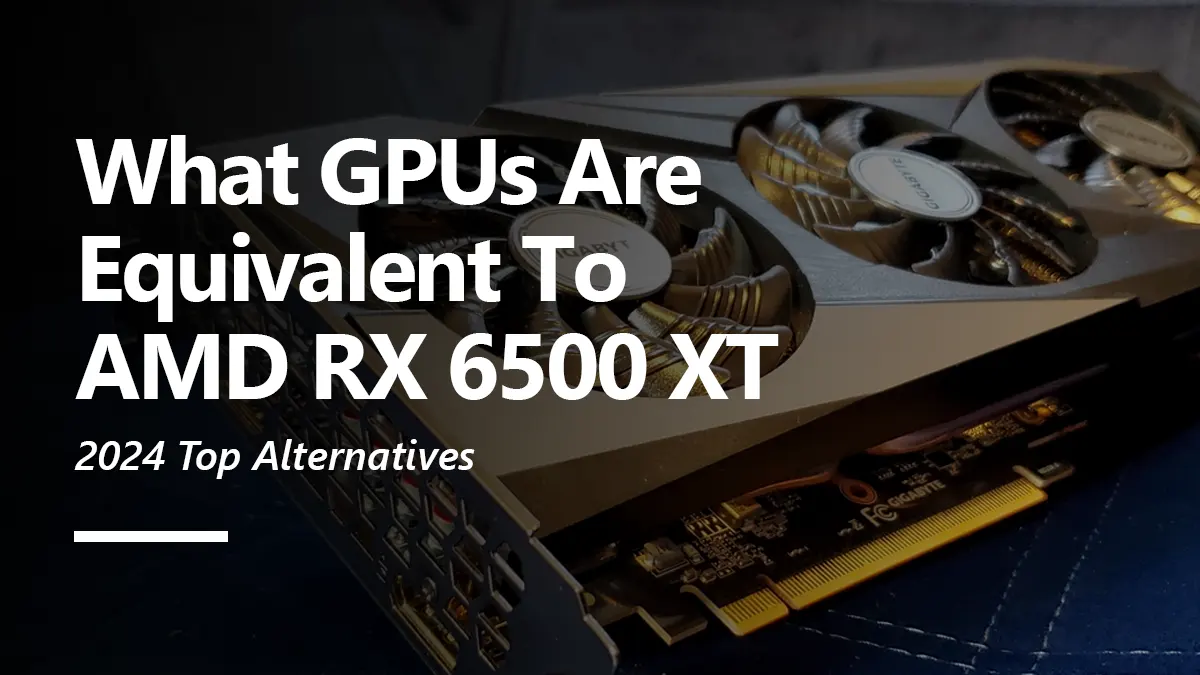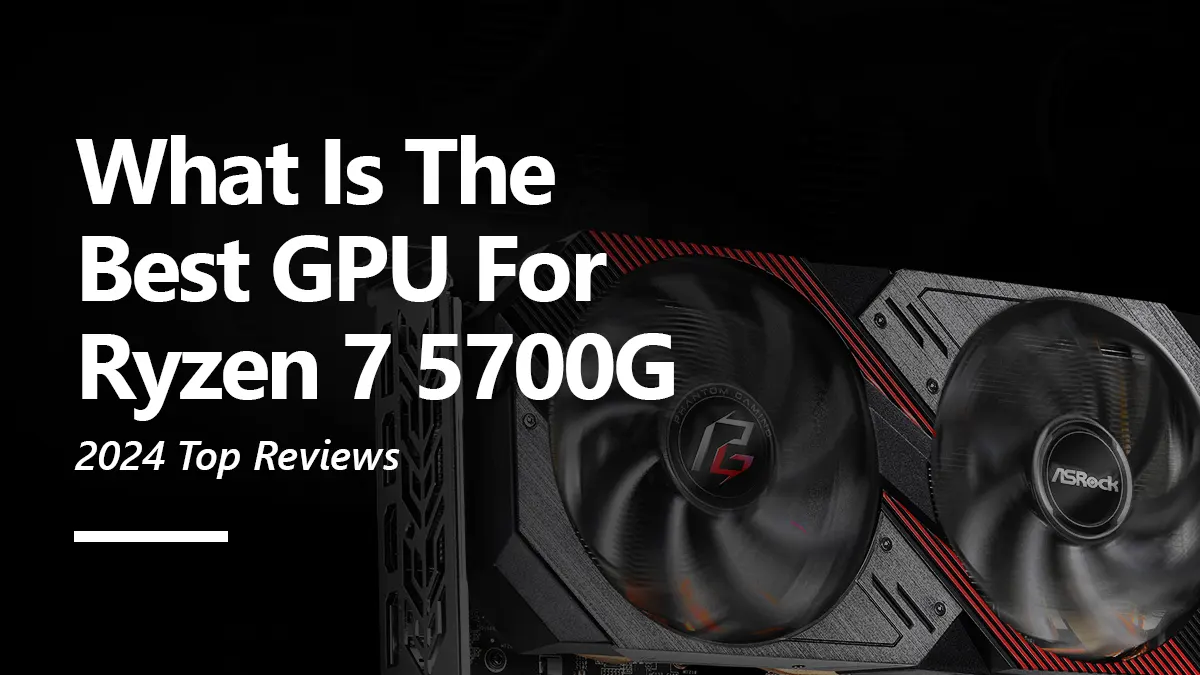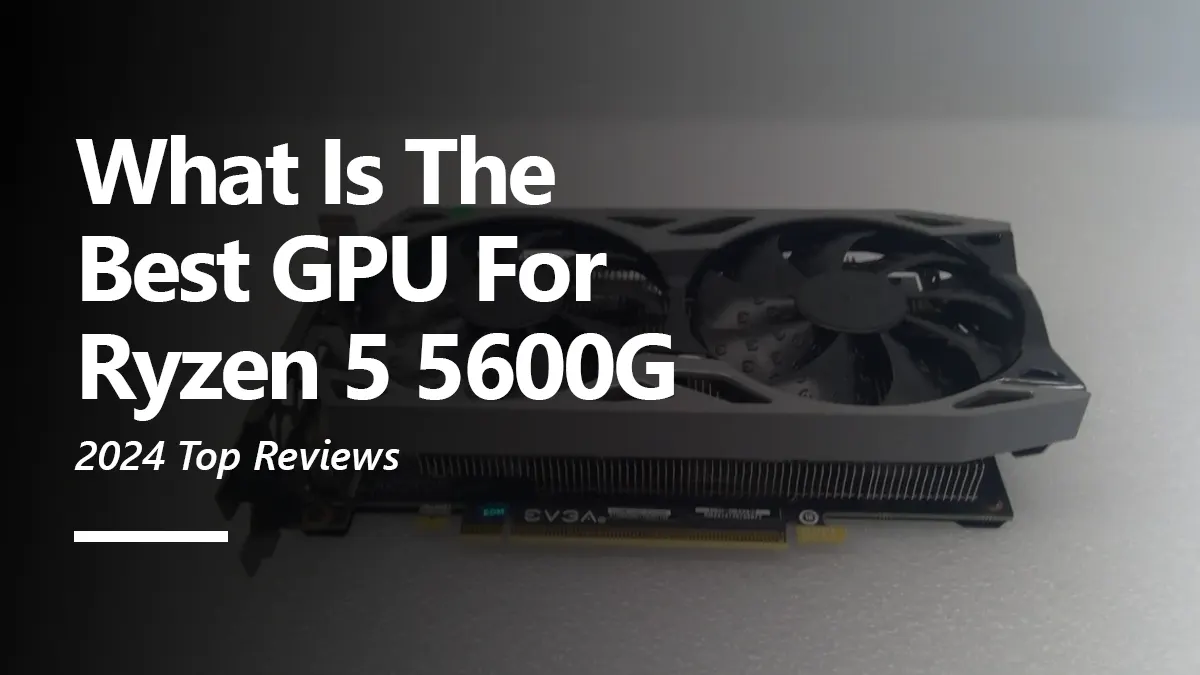AMD products always entice those consumers who value raw performance over simplicity, especially their graphics cards. With the RX 6600, AMD proves it can provide a thrifty graphics card that works exceptionally well. It is easily one of the best 1080p gaming GPUs that packs decently optimal attributes.
You can get an RX 6600 for around 300$ and benefit from all its contemporary elements, such as 7nm chip technology, modernized Radeon architecture, up to 2.5 GHz capable 1800 Stream processors/28 compute units and an apt 8GB memory. These features at this price are nearly undisputed.
However, the RX 6600 has some caveats due to specific cost constraints, like poor raytracing, lack of situational frame generation, and only moderate creative work handling capability. So here we are with another guide on alternative GPUs, which attends explicitly to the demographic who aren’t exactly happy with it.
RX 6600 Nvidia Equivalent GPU
For those looking for something other than the RX 6600, The RTX 3050 and RTX 2070 by Nvidia might be what you were looking for. The excellent notion about these RTX cards is that they certainly mitigate the problems you might face with 6600. Let’s check out what these cards offer in their own sections.
Palit RTX 3050 Dual
The RTX 3050 is also a 300$ low to mid-range graphics card that serves as an excellent starting point for anyone wanting to try Nvidia’s exclusive features. With a January 2022 release date, 3050 constitutes an 8-nm silicon and Ampere microarchitecture that allows features like DLSS 2.0 and raytracing.
These features rely on the 3050’s twenty 2nd-Gen RT cores and 80 3rd-Gen Tensor units. Meanwhile, the primary graphical rendering is handled by its 2560 CUDA engines. The RTX 3050 culminates a decent performance with GDDR6 8 gig RAM and utilizes only eight lanes of the Gen-4 PCI Express.
That said, the RTX 3050 only has a max clock of 1.77 GHz. These attributes aren’t enough to render the same performance as the RX 6600. However, the RTX 3050’s upscaling, AI applicability, creative work suite, and raytracing quickly come to the rescue, making it a suitable equalizer.
| Feature | Palit RTX 3050 Dual | AMD Radeon RX 6600 |
|---|---|---|
| Architecture | Ampere | RDNA 2.0 |
| Core Clock (MHz) | 1552 MHz | 1626 MHz |
| Boost Clock (MHz) | 1777 MHz | 2491 MHz |
| CUDA Cores | 2560 | 1792 |
| Memory Type | GDDR6 | GDDR6 |
| Memory Size (GB) | 8 GB | 8 GB |
| Memory Bus Width (bits) | 128 bit | 128 bit |
| Memory Speed (Gbps) | 1750 MHz 14 Gbps effective | 1750 MHz 14 Gbps effective |
| TDP (Watts) | 130 W | 132 W |
| DirectX Version | 12 Ultimate (12_2) | 12 Ultimate (12_2) |
| OpenGL Version | 4.6 | 4.6 |
| VR Ready | - | - |
| Ray Tracing Cores | 20 | 28 |
| Ports | 1x HDMI 2.1 3x DisplayPort 1.4a | 1x HDMI 2.1 3x DisplayPort 1.4a |
| Price | $285.70 | $400.21 |
GALAX Boy RTX 2070
Comprising a spiffy design of its time and a 12nm processing chip, the RTX 2070 still surpasses expectations with its outstanding display of effectiveness. It works on Ampere’s preceding architecture, designated as Turing, and embraces a generational leap in performance from the GTX 10 and 16 series.
Despite being generations behind and having a lower core clock, the RTX 2070 is unusually faster than the RX 6600 and has identical video memory. The marginal performance boost can be attributed to its marvelous optimization of core utilization and higher bandwidths. Speaking of core usage, the 2070 has first-gen 36 RT units and 288 Tensor units.
From the present perspective, its raytracing is only decent at best. However, it’s still better at these operations than the RX 6600 and garners an overall positive rating against the 6600 in all tests and benchmarks.
| Feature | GALAX BOY RTX 2070 GAMER OC | AMD Radeon RX 6600 |
|---|---|---|
| Architecture | Turing | RDNA 2.0 |
| Core Clock (MHz) | 1410 MHz | 1626 MHz |
| Boost Clock (MHz) | 1830 MHz (+13%) | 2491 MHz |
| CUDA Cores | 2304 | 1792 |
| Memory Type | GDDR6 | GDDR6 |
| Memory Size (GB) | 8 GB | 8 GB |
| Memory Bus Width (bits) | 256 bit | 128 bit |
| Memory Speed (Gbps) | 1750 MHz 14 Gbps effective | 1750 MHz 14 Gbps effective |
| TDP (Watts) | 175 W | 132 W |
| DirectX Version | 12 Ultimate (12_2) | 12 Ultimate (12_2) |
| OpenGL Version | 4.6 | 4.6 |
| VR Ready | Yes | - |
| Ray Tracing Cores | 36 | 28 |
| Ports | 1x HDMI 2.1 3x DisplayPort 1.4a 1x USB Type-C | 1x HDMI 2.1 3x DisplayPort 1.4a |
| Price | $719.00 | $400.21 |
Final thoughts
As we said, AMD’s line-up of graphics cards is excellent in all manners. But it isn’t for everyone and with the apparent disadvantages in certain sectors, it is imperative to have knowledge about other equally powerful cards.
In general, Nvidia’s RTX 3050 and 2070 have an edge due to raytracing and creative efficiency. Otherwise, AMD has put a lot of effort into its newer series and is fully aware of its mindshare. They consistently work on delivering the best possible experience and still provide software support for many old graphics cards to this day.
Nevertheless, newer products have their advantages such as a secure future-support and constant driver updates for improved user experience. With these choices and info, you can be certain of your next pick with confidence.




